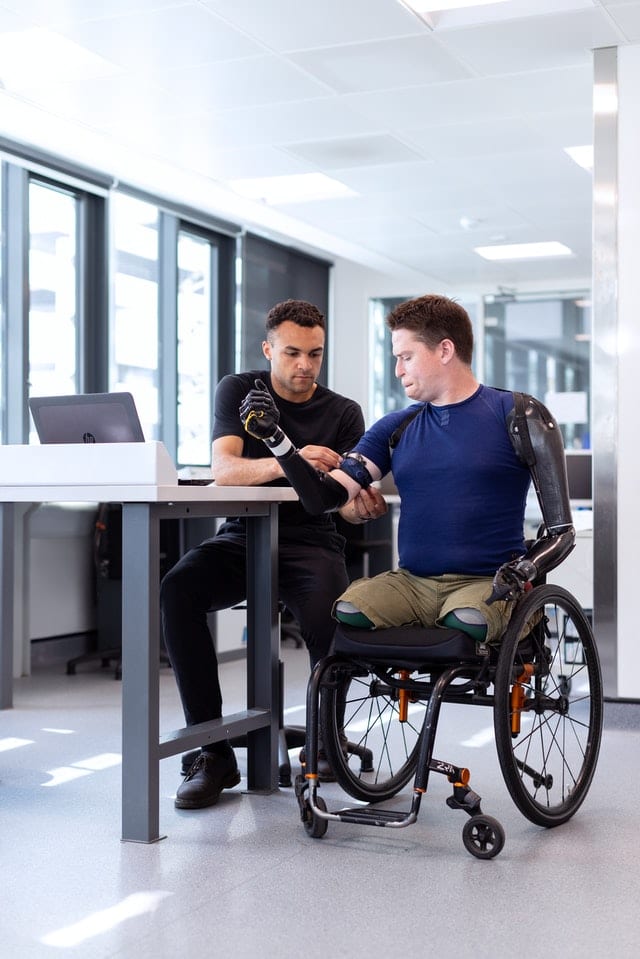 Am I eligible for Veterans Administration (VA) disability benefits?
Am I eligible for Veterans Administration (VA) disability benefits?
You may be able to get VA disability benefits or compensation if you have a service-connected condition and you have served on active duty. In some circumstances you may be able to get benefits if you were injured or became impaired during inactive duty training. You must have been separated or discharged from service under other than dishonorable conditions.
You must also have at least one of the following:
- Got sick or injured while serving in the military—and your condition can be linked to your military service (in-service disability claim), or
- Had an illness or injury before you joined the military—and your military service made it worse (a pre-service disability claim), or
- Have a disability related to your active-duty service that didn’t appear until after you ended your military service (a post-service disability claim)
What conditions are covered under VA disability compensation?
You may be able to get VA disability benefits for conditions such as:
- Chronic back pain resulting in a current diagnosed back disability
- Breathing problems resulting from a current diagnosed lung condition or lung disease
- Severe hearing loss
- Scar tissue
- Loss of range of motion (problems moving your body)
- Ulcers
- Cancers caused by contact with toxic chemicals or other dangers</li
- Traumatic brain injury (TBI)
- Posttraumatic stress disorder (PTSD)
- Depression
- Anxiety
Get more information about conditions that may be covered
 What is a VA disability rating?
What is a VA disability rating?
The VA uses the “whole person theory” to determine your disability rating. The combined or total disability rating is a percentage based on the severity of your impairment(s) and how much your disability decreases your overall health and ability to function.
How is my VA rating used?
The VA uses your disability rating to determine your disability compensation rate, and it affects the amount of money you receive from the VA each month. The VA also uses your disability rating to help determine your eligibility for other benefits, like VA health care.
How does the VA decide my disability rating?
The VA bases your rating on evidence provided from various sources, including:
- Documentation you provide, such as a doctor’s report or medical test results, and
- Results of your VA claim exam if the VA determines you need this exam, and
- Any other information we may get from other sources, including federal agencies
What evidence do I need to support my VA disability case?
You can help to support your VA disability claim by providing relevant evidence, such as:
- Documentation from your time in the service
- Documentation of service-connected disabilities
- VA medical records and hospital reports
- Private medical records and hospital reports
- Certified statements from licensed professionals that have examined you, interviewed you, or reviewed your records
- Supporting statements from family members, friends, clergy members, law enforcement personnel, or those you served with describing your claimed condition and how and when it happened, or how it got worse
Are my dependents covered under VA compensation?
 VA Dependency and Indemnity Compensation (DIC) coverage is available for widows and children of veterans who died of service-connected impairments. For example, a Vietnam War veteran exposed to Agent Orange developed heart disease. If the veteran was receiving veterans benefits for heart disease and then died of heart disease, the family left behind may be eligible for benefits.
VA Dependency and Indemnity Compensation (DIC) coverage is available for widows and children of veterans who died of service-connected impairments. For example, a Vietnam War veteran exposed to Agent Orange developed heart disease. If the veteran was receiving veterans benefits for heart disease and then died of heart disease, the family left behind may be eligible for benefits.
How long does it take the VA to make a decision?
Average number of days it takes the VA to complete disability-related claims in March 2020 is 79.9 days
How can a VA accredited representative help me with my VA case?
An accredited representative is a professional who is trained and certified in VA claims and appeals you choose to work with you to file your VA case in an effort to get you access to VA benefits.
VA disability benefits determination go through a complex process of application, denial, appeal, and approval. Throughout this process, you’ll get letters from the VA asking for documents and other information. When we represent you, we will help you take the actions you need to prove your case. There are no up-front costs to you. If you win, our VA disability benefits lawyers are paid a one-time percentage of the settlement. If we don’t win your case, you don’t owe us anything.
